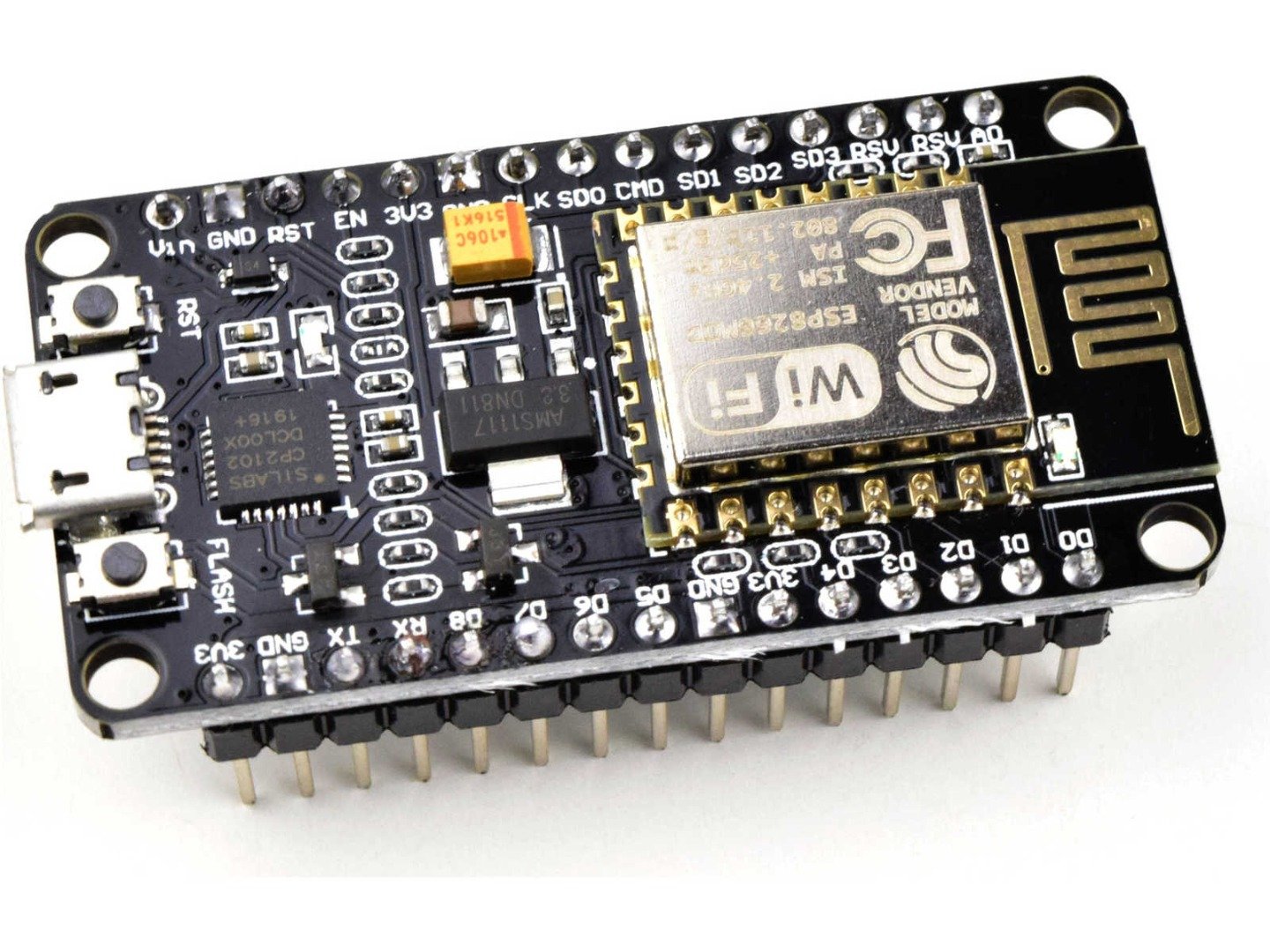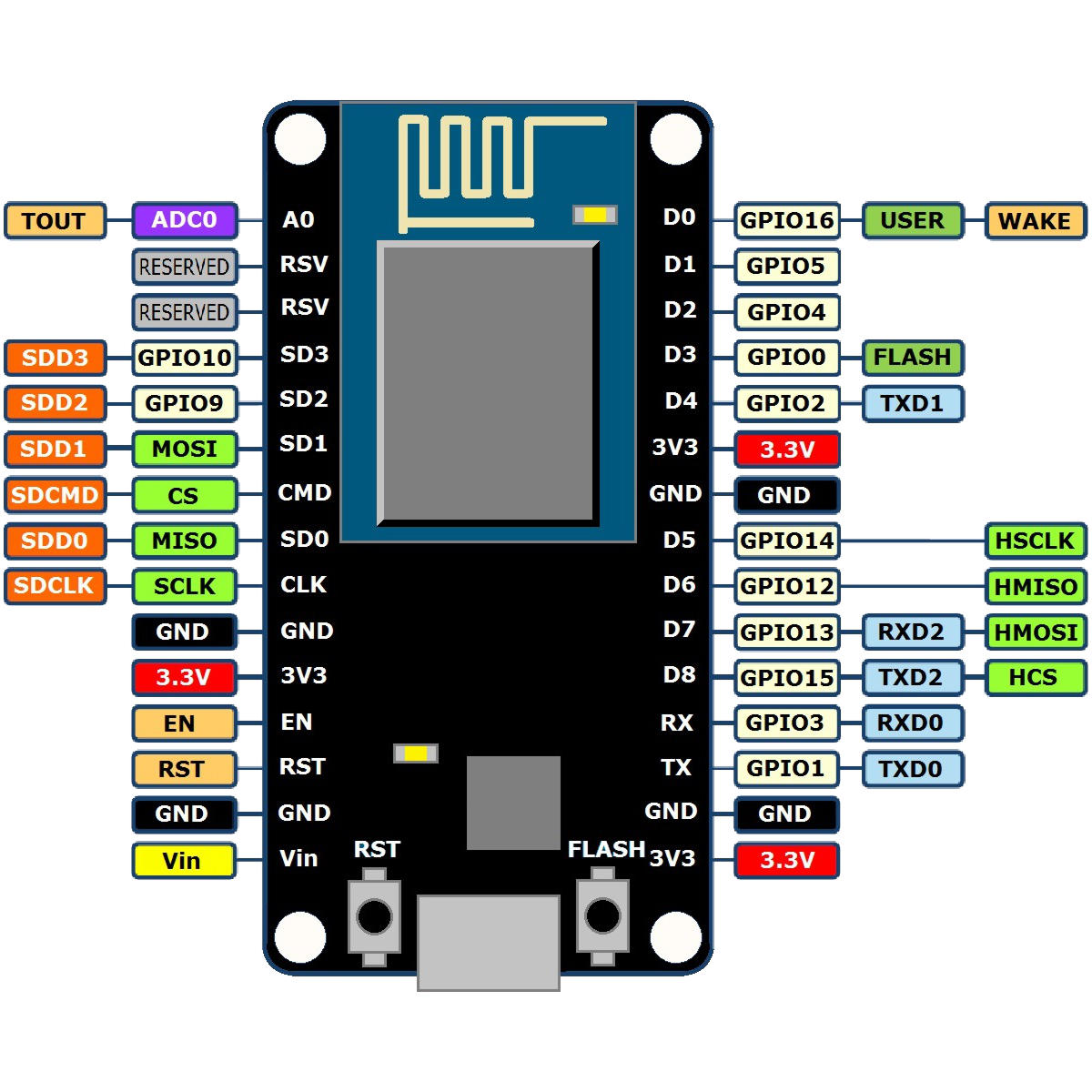Nodemcu esp8266
lengyel babakocsi
ESP8266 NodeMCU Development Board">Getting Started with ESP8266 NodeMCU Development Board. What is an ESP8266 NodeMCU? The ESP8266 is a low-cost Wi-Fi chip developed by Espressif Systems. It can be used as a standalone device, or as a UART to Wi-Fi adaptor to allow other microcontrollers to connect to a Wi-Fi network. For example, you can connect an ESP8266 to an Arduino to add Wi-Fi capabilities to your Arduino board.. NodeMCU - Wikipedia">NodeMCU - Wikipedia. NodeMCU DEVKIT 1.0, bottom. NodeMCU is a low-cost open source IoT platform. It initially included firmware which runs on the ESP8266 Wi-Fi SoC from Espressif Systems, and hardware which was based on the ESP-12 module
fradi meccs holnap
. Later, support for the ESP32 32-bit MCU was added.. ESP8266 NodeMCU Projects, Tutorials and Guides with Arduino IDE">150+ ESP8266 NodeMCU Projects, Tutorials and Guides with Arduino.
amstel hol kapható
. We have more than 150 ESP8266 NodeMCU Tutorials and project ideas as well as a Premium eBook Home Automation using ESP8266. Using the next quick links, you’ll find all our ESP8266 Guides with easy to follow step-by-step instructions. Each tutorial includes circuit schematics, source code, images and videos.. GitHub - esp8266/Arduino: ESP8266 core for Arduino">GitHub - esp8266/Arduino: ESP8266 core for Arduino
panton papír
. Arduino on ESP8266 This project brings support for the ESP8266 chip to the Arduino environment
óriás játék busz

![]()

a bagolyház 2 évad 1 rész magyarul
fogyasztóvédelem panaszbejelentés szeged
. What is NodeMCU? Technically speaking NodeMCU is a firmware for ESP8266 developed using C Programming Language, Espressif NON-OS SDK and Lua scripting language. Traditionally, we write code for our Microcontrollers like Arduino, STM32, 8051 etc., either in C or C++ and compile it with a set of tools and generate a binary file.

időkép kemenespálfa
. The Development Kit based on ESP8266, integrates GPIO, PWM, IIC, 1-Wire and ADC all in one board
astrolux ft03
. Power your development in the fastest way combined with NodeMcu Firmware! USB-TTL included, plug&play
mancs őrjárat 7. évad online magyarul
bahamák malacok
. NodeMCU ESP8266: Complete Guide – Robocraze">What is NodeMCU ESP8266: Complete Guide – Robocraze
online rádió felvétel vlc
. The onboard ESP8266 chip manufactured by Espressif Systems has an ESP8266EX core Wi-Fi SoC and a Tensilica L106 32-bit processor in the same chip. It has 2.4GHz 802.11b/g/n Wi-fi with on-board antenna which supports WPA/WPA2.. NodeMCU Documentation">NodeMCU Documentation. NodeMCU Documentation¶. NodeMCU is an open source Lua based firmware for the ESP8266 WiFi SOC from Espressif and uses an on-module flash-based SPIFFS file system. NodeMCU is implemented in C and is layered on the Espressif NON-OS SDK
. The firmware was initially developed as is a companion project to the popular ESP8266-based NodeMCU development modules, but the project is now community ..